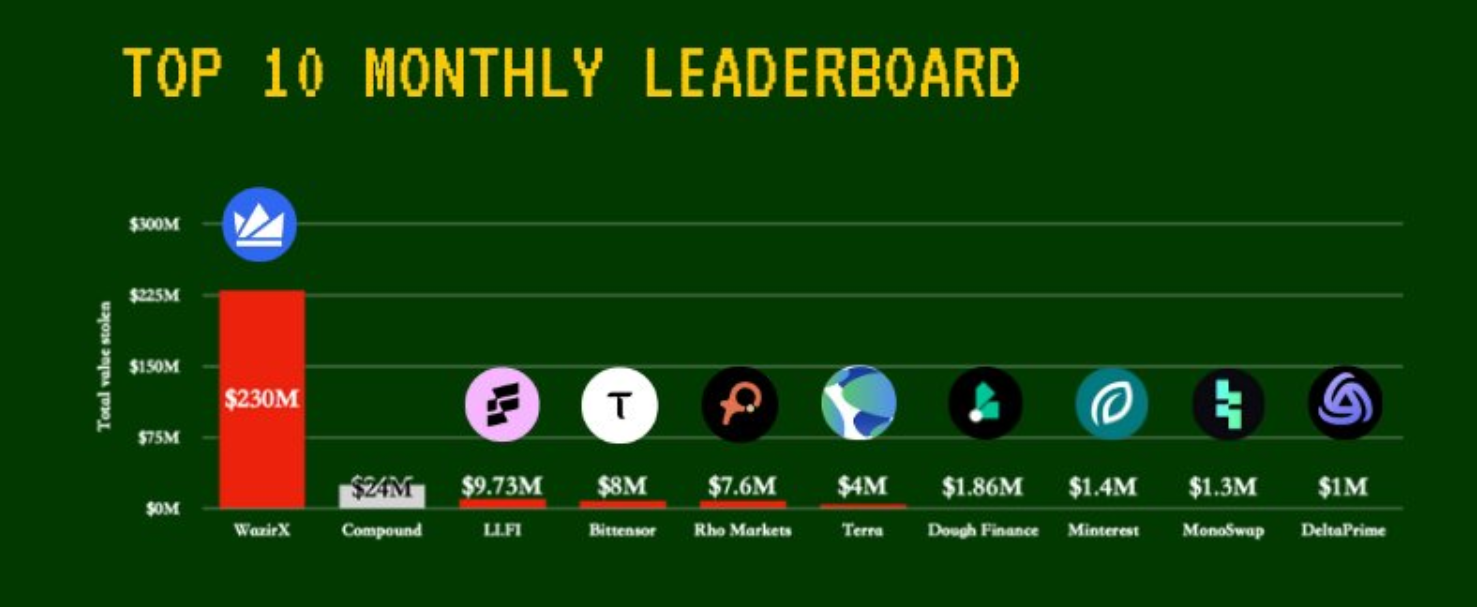In July, online hackers stole approximately $266 million from the crypto ecosystem and investors through 16 separate attacks. On July 18, the Indian crypto exchange WazirX lost over $230 million in a major attack, representing 86.4% of the total crypto lost in attacks this month. Independent investigations attributed the attack to North Korean hackers based on the attack process and techniques.
What Happened in July?
Blockchain research company PeckShield reported that the stolen WazirX funds, totaling 61,154 Ethereum, remained under the hacker’s control as of August 1.

Other significant crypto attack victims in July included the algorithmic protocol Compound Finance with $24 million, the bridging protocol Li.Fi protocol with $10 million, the decentralized AI protocol Bittensor, and the liquidity provider Rho Markets, each losing $8 million.

In most cases, hackers moved the stolen funds to the crypto mixer Tornado Cash to avoid detection and tracking. In contrast to the July attacks, June saw a relatively lower loss of $176 million spread over approximately 20 incidents.
Details on the Issue
At the end of July, the notorious Terra ecosystem temporarily halted at block height 11430400 following an attack costing $6 million. The Terra hacker exploited a known vulnerability, stealing 60 million ASTRO (ASTRO), 500,000 USD, 3.5 million USD Coin, and 2.7 Bitcoin.

Terra developers completed an emergency chain upgrade before resuming block production on the same day. The company update stated:
“Validators holding over 67% of the voting power on Terra upgraded their nodes to prevent a repeat of the attack. More validators are expected to upgrade soon.”
According to Deddy Lavid, co-founder and CEO of Web3 security firm Cyvers, centralized finance (CeFi) institutions will be the biggest target for crypto hackers in 2024. Lavid previously mentioned that attacks on smart contract-based projects have also increased. He added that the biggest security vulnerabilities today stem from both code and personal negligence.

 Türkçe
Türkçe Español
Español









